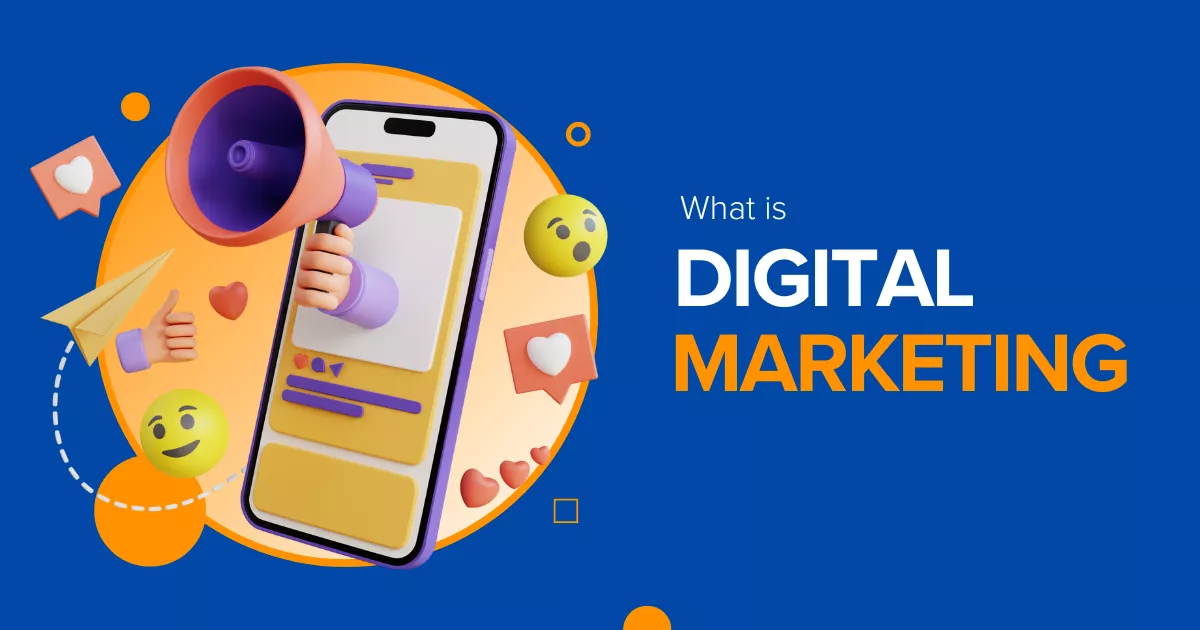Digital marketing encompasses all marketing efforts that utilize digital technologies and channels, including websites, search engines, email, social media, and mobile apps, to connect with current and prospective customers. It plays a crucial role in modern business strategies by enabling businesses to reach a global audience efficiently.
The core objective of digital marketing is to promote products or services and drive meaningful customer engagement through targeted strategies and analytics.
Key Components of Digital Marketing
| Component | Description | Example Channels | |
| Search Engine Optimization (SEO) | Optimizing content to rank higher on search engines | Google, Bing | |
| Pay-Per-Click Advertising (PPC) | Paid ads to drive immediate traffic | Google Ads, Facebook Ads | |
| Content Marketing | Creating valuable content to attract and engage audiences | Blogs, Videos, Whitepapers | – |
| Social Media Marketing | Leveraging social platforms for brand promotion | Facebook, Instagram, LinkedIn | – |
| Email Marketing | Personalized email campaigns to nurture leads | Mailchimp, HubSpot | – |
| Affiliate Marketing | Partnering with individuals or businesses to promote products or services | Amazon Associates, ShareASale | – |
Importance of Digital Marketing in Today’s Business World
Global Reach and Accessibility
Digital marketing allows businesses to expand their audience beyond geographical boundaries. Through tools like Google Ads and social media campaigns, even small businesses can access global markets without significant investment.
Cost-Effectiveness
Compared to traditional marketing methods like print or television ads, digital marketing often proves to be more economical. For instance, email marketing campaigns can yield high returns at a fraction of the cost.
Measurable Results
Advanced analytics tools provide insights into campaign performance, customer behavior, and ROI. Metrics such as click-through rates, conversion rates, and audience engagement help marketers fine-tune strategies.
Types of Digital Marketing Strategies
Search Engine Optimization (SEO)
Search Engine Optimization is the process of optimizing website content to improve its visibility in search engine results. Effective SEO involves:
- Using relevant keywords strategically.
- Enhancing website load speed.
- Building high-quality backlinks.
Pay-Per-Click (PPC) Advertising
PPC campaigns allow businesses to pay for traffic. Ads appear on platforms like Google and Facebook based on specific keywords and demographics.
Social Media Marketing
This strategy leverages social media platforms to create brand awareness, drive traffic, and foster community engagement. Key steps include:
- Posting engaging content regularly.
- Using analytics to track performance.
- Running targeted ad campaigns.
Content Marketing
Content marketing involves creating and distributing valuable content to attract a defined audience. Examples include:
- Writing blog posts.
- Producing informative videos.
- Offering downloadable resources like eBooks.
Email Marketing
Email marketing remains one of the most direct and effective ways to connect with customers. Strategies include:
- Personalizing messages based on user behavior.
- Offering discounts or exclusive content.
- Automating follow-ups.
Future Trends in Digital Marketing
Artificial Intelligence and Automation
AI is transforming how marketers predict customer behavior, personalize user experiences, and optimize ad targeting. Automation tools reduce repetitive tasks, freeing time for creative strategy.
Voice Search Optimization
As voice-activated assistants like Alexa and Siri grow in popularity, optimizing content for voice search is becoming essential.
Video Marketing
Short-form videos on platforms like TikTok and Instagram Reels are capturing audience attention, making video a dominant content format.
Sustainability and Ethical Marketing
Consumers are increasingly favoring brands that showcase eco-friendly practices and ethical business values.
Digital Marketing Tools and Platforms
To execute successful campaigns, marketers use a variety of tools:
- Google Analytics: Tracks website traffic and user behavior.
- HubSpot: Provides tools for email marketing, CRM, and content management.
- Hootsuite: Manages social media scheduling and analytics.
- SEMrush: Assists with SEO and keyword research.
By integrating these tools, businesses can streamline processes and achieve greater efficiency.
Challenges in Digital Marketing
High Competition
The digital space is crowded, with many businesses vying for the same audience. To stand out, companies must consistently deliver unique and valuable content.
Keeping Up with Trends
Digital marketing trends evolve rapidly. Staying updated with the latest technologies, consumer preferences, and platform algorithms is a constant challenge.
Data Privacy Regulations
Compliance with data privacy laws such as GDPR and CCPA is essential. Marketers must balance personalization with respect for user privacy.
Measuring ROI
While digital marketing provides extensive analytics, accurately measuring ROI can be complex due to the multi-touch nature of customer journeys.
Conclusion
Digital marketing is an indispensable tool for businesses looking to thrive in the modern era. By leveraging various strategies, staying attuned to emerging trends, and utilizing advanced tools, companies can connect with their audience effectively and drive sustainable growth.
Looking to boost your digital marketing? At Top In SERP, we offer a free consultation to help you create effective strategies that drive results. Connect with us today and start growing your business online!


